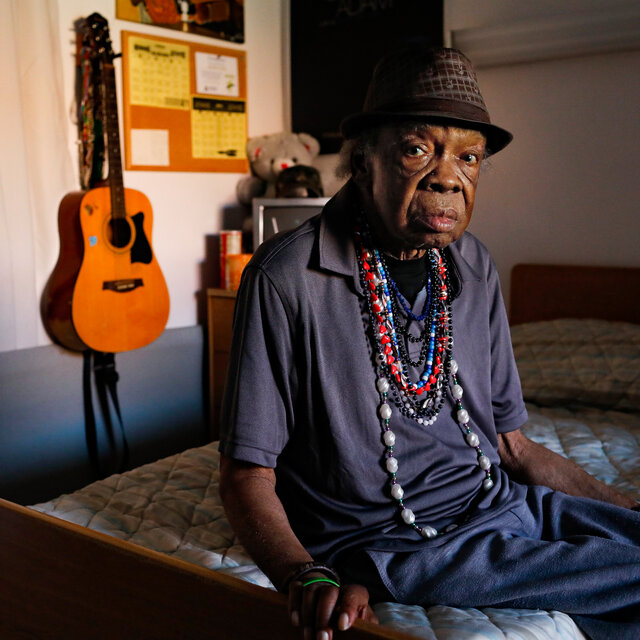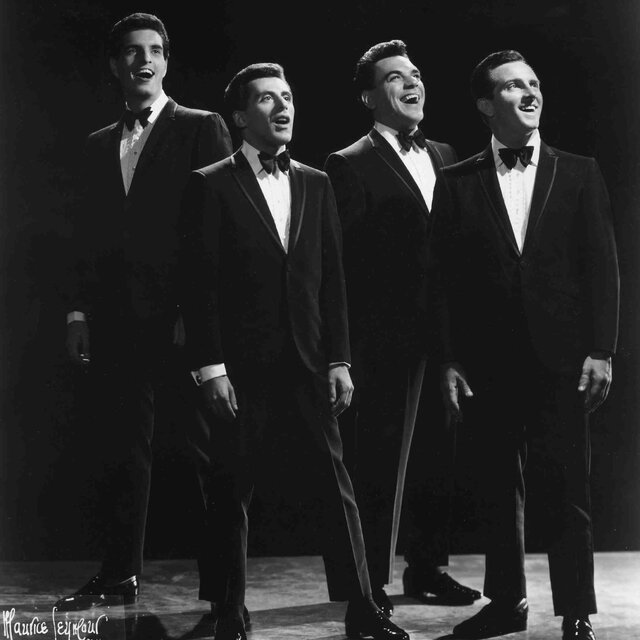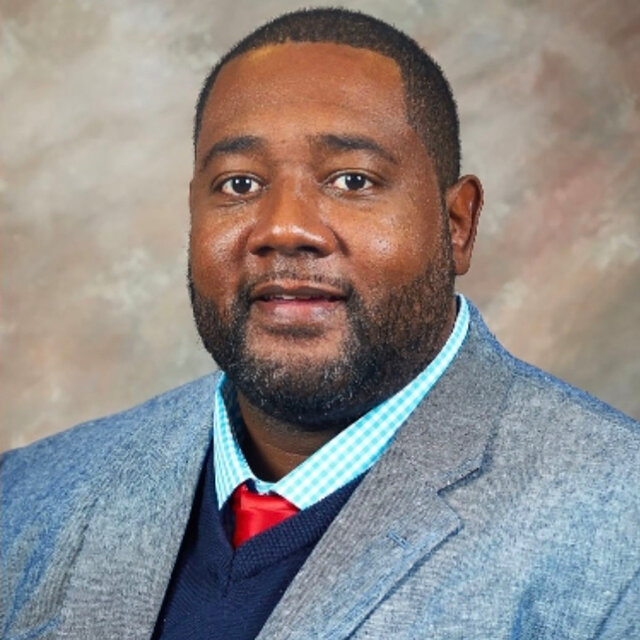Advertisement
Those We’ve Lost
As half of the duo Satan and Adam, he played blues on the streets of Harlem and later on stages around the world. He died of complications of Covid-19.
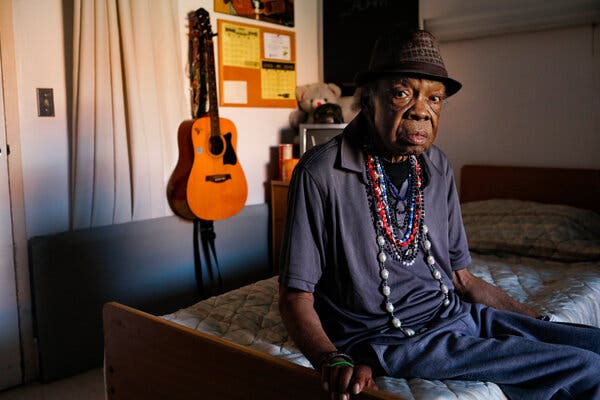
This obituary is part of a series about people who have died in the coronavirus pandemic. Read about others here.
Sterling Magee, who played a furious, thoroughly original style of blues under the name Mr. Satan, first as a solo act on the streets of Harlem and then as part of the duo Satan and Adam, died on Sept. 6 in Pinellas Park, Fla. He was 84.
His sister Janet Gammons said Mr. Magee contracted Covid-19 three months ago and died in a hospice from complications of the disease.
Half bluesman, half street preacher, Mr. Magee was a fixture on 125th Street throughout the 1980s, parked one block east of the Apollo Theater, where he drew crowds of curious onlookers and fans. He played electric guitar, sang and stomped out a rhythm with a pair of hi-hat cymbals simultaneously, a feat of musicianship often overshadowed by his otherworldly charisma, bushy Moses-like beard and koan-like sayings.
“We don’t need to rehearse to be people. So why should we have to rehearse to be musicians?” he said in an interview with WNYC-TV in 1992, summing up his freewheeling approach to both life and music.
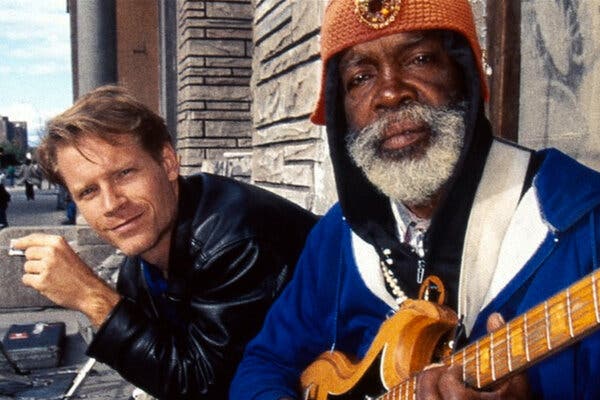
In 1986, Adam Gussow chanced upon a performance by Mr. Magee, asked to sit in on harmonica and became his musical partner for many years. “I’d argue he’s the greatest one-man blues band that America has produced,” Mr. Gussow, now a professor of English and Southern studies at the University of Mississippi, said in a phone interview. “Sterling was always trying to push the boundaries. He was a man who was coming into full flower on the street.”
Mr. Magee had a brief solo career in the 1960s, and as a guitarist he backed King Curtis, James Brown and Etta James, but he found his greatest fame with Mr. Gussow, outside the music industry. They were an unlikely pair: a 50-year-old Black man born and raised in Mississippi and a 28-year-old white, Ivy League-educated writing tutor, jamming before the public at a time when New York was deeply divided along racial lines.
When Yusuf Hawkins, a Black teenager, was shot and killed in Bensonhurst, Brooklyn, by a white gunman in 1989, Mr. Magee told his young associate that it would be best to stay away from Harlem until tensions cooled.
But Mr. Magee never dwelt on their racial differences. “When we get together, I’m Mr. Satan and he’s Mr. Gussow,” he told The New York Times in 2019, upon the release of the Netflix documentary “Satan and Adam.” “I want to put the message out that Mr. Satan is in love with this person, and that I don’t give a damn about all that stuff.”
Satan and Adam honed their act as street musicians for four years. Then, at Mr. Gussow’s urging, they embarked on a more professional career.
They played a celebrated show at the New Orleans Jazz and Heritage Festival in 1991; released a trio of raw-sounding albums, beginning with “Harlem Blues” that same year; and toured widely. They appeared briefly in U2’s 1988 tour documentary, “Rattle and Hum.” And they were the subjects of both the Netflix documentary and a 1998 memoir by Mr. Gussow, “Mister Satan’s Apprentice.”
V. Scott Balcerek, who directed the film, first encountered the duo in 1992 at a club in Pittsburgh. “I was blown away by the sound these two people could make,” he said.
Sterling Magee was born on May 20, 1936, in Mount Olive, Miss., in the south-central part of the state, to Guy and Lena (Rowe) Magee. His mother, a Baptist, scolded him for playing secular music on the piano, and he developed a lifelong dislike of organized religion, which he viewed as hypocritical.
Parts of Mr. Magee’s career and personal life remain a mystery. He joined the Air Force after high school and, upon his discharge, moved to St. Petersburg, Fla., where his family had relocated. He played local clubs billed as Five Fingers Magee, he told Mr. Gussow, because of his virtuosic technique.
“He prided himself on having invented a new way of playing,” Mr. Gussow said. “He didn’t bend strings like B.B. or Albert King. He moved chord forms back and forth really quick, and used drone strings. He could keep the chord thing going and drill high treble stuff for emphasis.”
Mr. Magee recorded some singles for Tangerine Records in the 1960s but later maintained that they never received any promotion because Ray Charles, the founder of the label, didn’t like other artists to outshine him. He became disillusioned by the music industry as a result.
Mr. Magee bounced around during the 1970s, variously living in New York, Mississippi and Florida. His wife, Betty, died of cancer, an experience that traumatized him. He re-emerged as Mr. Satan in 1979 and over the years gave varying explanations for his identity change.
“It wasn’t a thing I decided,” he told The Chicago Sun-Times in 1992. “A transition came over me.”
In addition to his sister Janet, Mr. Magee is survived by a brother, Guy Jr., and two other sisters, Mary Latortue and Martha Travis.
Mr. Magee suffered a nervous breakdown in 1998 and disappeared without telling Mr. Gussow, seemingly ending the duo’s career. Mr. Balcerek, who by then had started filming his documentary, eventually found Mr. Magee living in a nursing home in Gulfport, Fla.
Mr. Magee and Mr. Gussow reunited to play gigs in recent years, including a return to the New Orleans festival in 2013. And Mr. Balcerek resumed working on his film, capturing an artist who was slowed by time and health problems but still musically forceful and still embracing the moment.
“For us to try to figure out tomorrow is a waste of efforts,” Mr. Magee said in the film. “Let it flow, go with the flow and it’ll work out.”
Mr. Balcerek observed: “Sterling’s thing was really about sharing music and all that he had, so that people could turn around and spread more joy and love and gratitude in their own lives. For a person named Satan, his persona was the opposite.”


